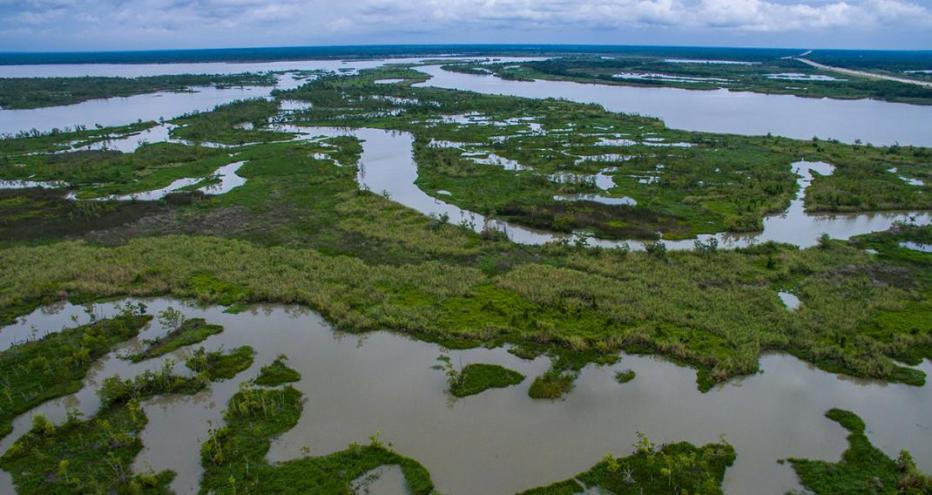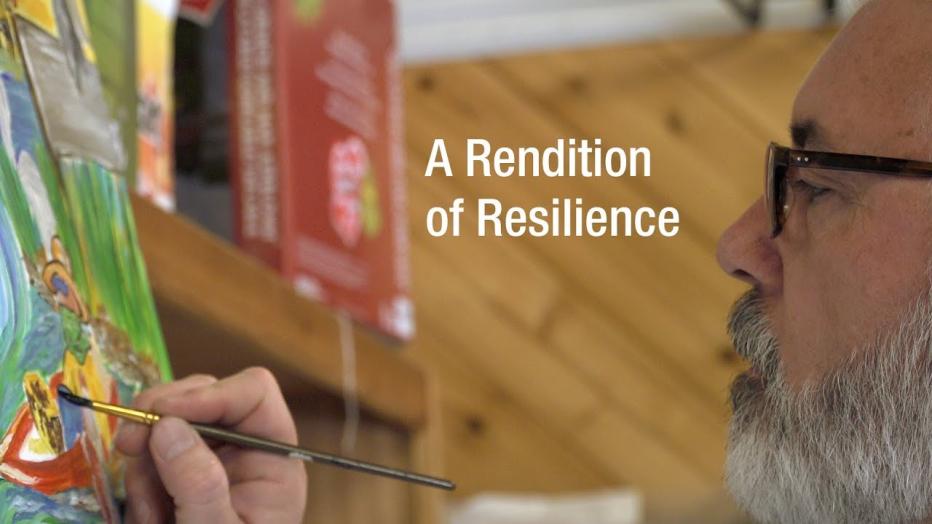



Jacobs. A world where you can.



As climate change threatens water security around the world, more communities are turning to water reuse as a resilient water supply solution and embracing the OneWater principle that all water has value. Jacobs has been supporting clients with water reuse programs for decades, beginning with the first applications of advanced wastewater treatment technologies in the 1960s. We provide our clients with a full range of services, from water reuse feasibility studies to design, construction and operations.



We’ve provided design-build services to the water sector for over 25 years and delivered more than 150 projects. We offer fully integrated design-build and design-build-operate capabilities to tackle the most complex water challenges and work in close collaboration with our clients.



For more than 30 years, Jacobs has been responsible for planning and implementing Lead and Copper Rule-related strategies which protect millions of people in the U.S. and Canada. Our work includes enhanced water quality monitoring strategies, sampling plan development, harvested pipe-scale analysis, lead service line inventories and replacement plans, corrosion control studies and the incorporation of equity and environmental justice considerations into compliance programs.



A curated selection of some of the top-listened to and trending podcast episodes from our popular If/When podcast series.



As a purpose-led company, we know we have a pivotal role to play in addressing the climate emergency. We consider this not only good business, but our duty to channel our technology-enabled expertise and capabilities toward benefitting people and the planet.



We work in partnership, delivering some of the most challenging, diverse and innovative projects and programs globally across multiple sectors. We integrate complex interfaces across planning, procurement and delivery to help unlock better social, environmental and economic outcomes from mega and giga projects.



As our clients navigate the digital transformation and growing cyber risks, we have positioned ourselves at the forefront of this growth, adding digital capabilities, products and tools to serve a growing set of customers.



Sit down with our visionary team of thinkers, dreamers and doers to see what a day in the life is like.



Together with our visionary partner, PA Consulting, we're establishing our position in high end advisory services, creating a springboard to expand in high value offerings beyond the core.


At Jacobs, we're challenging today to reinvent tomorrow by solving the world's most critical problems for thriving cities, resilient environments, mission-critical outcomes, operational advancement, scientific discovery and cutting-edge manufacturing, turning abstract ideas into realities that transform the world for good. With approximately $16 billion in annual revenue and a talent force of more than 60,000, Jacobs provides a full spectrum of professional services including consulting, technical, scientific and project delivery for the government and private sector.



The only certainty about the future is uncertainty. Resilience is an attribute of a smarter planet, and requires planning and adapting ahead of potential threats. We help our clients survive, recover, adapt and thrive.



Jacobs is working to help clients across the United States secure federal funding for projects that make our cities and communities more connected and sustainable. Working hand-in-hand with clients from coast to coast and everywhere in between, Jacobs develops bold, innovative solutions to address the nation’s toughest challenges.



Now more than ever, we appreciate the hard work, sacrifice and dedication of the medical profession in ensuring the health and safety of our communities.



Together, we are stronger. Together, we can transform the future.



Stories that capture our partnerships and innovative impact for a more connected, sustainable world



In 1819 – 200 years ago – the United States went into its first major financial crisis, Spain ceded Florida to the U.S. and literary greats Walt Whitman and Herman Melville were born. In the following two centuries, much of the world around us has changed – especially the nation’s original wetland habitats.
Coastal land loss is a serious challenge confronting Louisiana. Traditional flood control measures have caused further wetlands deterioration and loss, so much so the state of Louisiana lost 1,883 square miles of land between 1932 and 2010 — an area larger than the state of Rhode Island.
What if we could help change that trend with natural infrastructure?
barrels of crude oil transported per year on the Shell Pipeline Company LP’s Ship Shoal Pipeline along Louisiana’s coast
recycled plastic bottles turned into a sustainable, living coastline to protect vulnerable Louisiana marshland
“In coastal Louisiana, the ecosystem is dramatically different than it was one hundred years ago. Coastal land loss is impacting communities and the infrastructure that supports them, including critical energy assets such as pipelines. Jacobs’ and Shell’s natural solution not only supports these pipelines, but also serves as a model for balancing coastal infrastructure and an evolving natural environment today and for generations to come.”
Tom Meinhart
Jacobs Senior Vice President and South Regional Director, Buildings & Infrastructure Americas
Shell Pipeline Company, with help from Jacobs, are implementing one natural infrastructure solution serving as a model for balancing coastal infrastructure integrity and an evolving natural environment.
Home to a large fishing and sportsman industry, unique cultural and culinary history and architecture, Louisiana also houses critical oil and gas infrastructure responsible for collection and distribution of a third of the U.S.’s oil.
One such piece of infrastructure is the Ship Shoal Pipeline, a joint venture operated by Shell Pipeline, with 22-inch and 16-inch pipelines that run 31 miles along the Louisiana Coast, crossing a 650-foot-wide channel to deliver 50 million barrels of crude oil per year from deep-water assets in the Gulf of Mexico to the region and the economy.
The pipeline faces many challenges, including ensuring its integrity by addressing the loss of protective sediment and minimizing rising maintenance costs. To improve infrastructure integrity and environmental health at the same time. Shell Pipeline desired a different approach – turning to Jacobs as a leader in the natural infrastructure space to create a non-traditional approach that would protect the pipeline and benefit the coastal ecosystem.
Blue Hammock Bayou sits on the Louisiana coast where Ship Shoal Pipeline runs. Electing to apply a natural infrastructure solution rather than implementing more grey infrastructure, our team led analysis on the coastal environment and designed a solution, alongside The Nature Conservancy, that included installation of vegetation and sediment filled baskets to deter, coil logs filled with rock and coconut fibers, as well as sediment compaction and revegetation with robust clonal species adapted to water depth and energy forces. While protective of the pipeline, the sustainable solution has stabilized the marsh and greatly enhanced the natural habitat.

“A healthy marsh is needed to provide a safe and supportive environment for all coastal wildlife. A sustainable marsh provides the protection and support for our oil and gas pipelines, in turn protecting the infrastructure which provides the revenue to support our community and economy.”
Greg Mouras
General Manager US Midstream Operations at Shell Pipeline Company LP
On the heels of the success at Blue Hammock Bayou, our team once again partnered with Shell in Louisiana to apply an additional natural infrastructure solution along the Ship Shoal corridor. This time, Jacobs served as lead design engineer, alongside Shell, Martin Ecosystems and Chet Morrison Contractors, to install a system of 60 EcoBales – or modular cylinders which allow water to filter through – at Lost Lake.
Created by Martin EcoSystems, EcoBales, manufactured using 100% recycled materials, are lightweight and provide shoreline protection, ridge establishment and canal closure. Depending on size, each EcoBale is made using 1,200-2,400 PET plastic bottles and weighs approximately 225 to 425 pounds.
The PET fibers of the EcoBale bond together forming a non-toxic, nonwoven matrix. The strength of this matrix reduces wave energy and its open-cell design allows the collection of sediment within the structure – key to sediment entrapment and build up. Each EcoBale is coated with a marine grade polyurea for strength and UV protection, creating a strong durable product.
At Lost Lake, our 60-EcoBale system – made from 96,000 recycled plastic bottles – closed off the pipeline right-of-way, while also creating a natural ridge and ecosystem. In doing so, it’s already improving marsh production and water quality, flood risk reduction and aquatic resource benefits. Additionally, the EcoBale’s lightweight design further reduced the impacts to the surrounding ecosystem by requiring less personnel and equipment and by eliminating the need for dredging in shallow project areas during installation.
As the coastal environment conditions change, Jacobs and Shell are committed to using natural infrastructure to fortify and enhance vulnerable coastal land and critical infrastructure assets – using successes and practices from both the Blue Hammock Bayou and Lost Lake projects to guide future solutions.